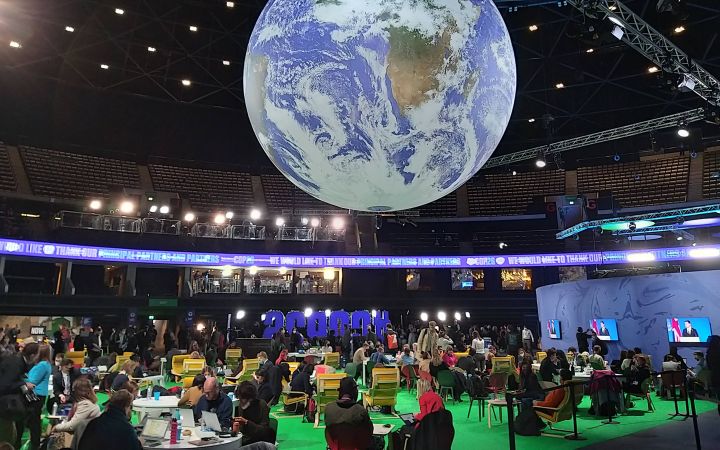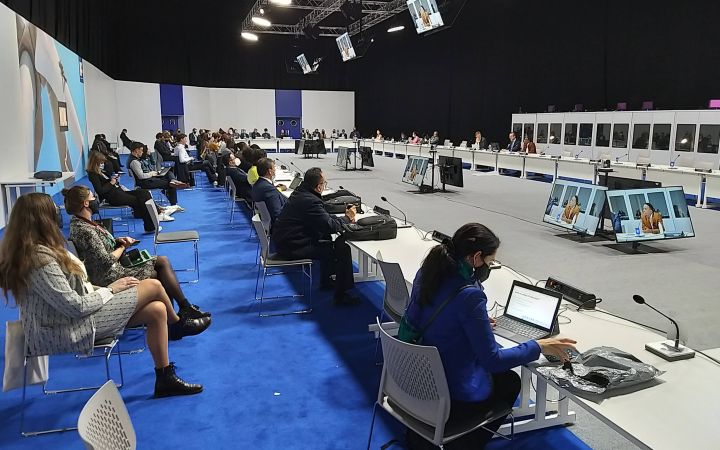Greenhouse gas emissions directly contribute to global warming and climate change. The technology and fuel used for electricity generation are often responsible for high greenhouse gas emissions. Recently, UNITAR conducted a survey among energy experts in the humanitarian system to estimate the number of diesel and petrol generators that are used to produce electricity in humanitarian operations, with a view to establishing the opportunities to transition to solar solutions.
Based on feedback from six UN organisations and the ICRC, a study allowed us to estimate that there are currently more than 11,000 generators in use around the world. Our initial conservative estimates are that humanitarian agencies spend more than $100 million on fuel per year, emitting almost 200,000 tonnes of CO2. In addition, we have also estimated that a total investment of around $250 million would be necessary to solarise viable systems, which could save around $70 million in fuel costs and around 125,000 tonnes of CO2 per year.
Across the globe, public institutions, such as Governments, Municipalities and International Organizations, are developing pathways to reduce their environmental and carbon footprint to attain the shared goal of net-zero emissions. The UN Climate Conference allowed important actors in the sustainable energy sector to reflect on how to go green and face up to the climate crisis.
At a COP26 side event, the UN Environment Programme (UNEP), Greening Government Initiative (GGI), and UNITAR’s Global Platform for Action on Sustainable Energy in Displacement Settings (GPA), joined forces to take stock, outline ambitions and present concrete proposals on how to ‘walk the talk’ and lead the energy transition globally.
The United Nations System is active in different countries around the world, both through its offices and through its programmes and initiatives. The UN System acts to reduce its environmental and climate footprint via the ‘Greening the Blue’ initiative led by UNEP with the involvement of over 50 UN entities. Via the 2020-2030 UN Sustainability Strategy, UN Entities committed to align their own practices with the IPCC 1.5°C global warming scenario, which requires an absolute 45% GHG reduction by 2030.
Similarly, the newly launched Greening Government Initiative led by the USA and Canada is demonstrating leadership through a first-of-its-kind international community of practice focused on greening national government operations that will enable countries to share lessons learned, promote innovation, and help meet Paris Agreement commitments. The Greening Government Initiative will serve as a platform for country representatives to share information and best practices, showcase success, and develop collaborative relationships with one another to accelerate national efforts to green government operations through reducing GHG emissions and enhancing climate resilience.
In the humanitarian space, UNITAR’s Global Platform for Action on Sustainable Energy in Displacement Settings (GPA), is a global initiative to promote actions that enable energy access in humanitarian settings by providing a collaborative agenda for energy, development, and humanitarian partners, and to deliver concrete actions of SDG 7. The GPA is steered by 16 international organizations, including UN and non-UN organizations, contributing to both the development, and the humanitarian sectors. It contributes to the humanitarian sector’s transition to renewable energy, which will increase efficiency, and reduce both costs and carbon emissions, which is key in the fight against climate change. This ambition will be achievable through a collaborative approach among governments, private companies, development and humanitarian actors.
The work of UNEP, GGI and UNITAR’s GPA show how collaboration can further facilitate efforts to go green. Such global initiatives have the potential to inspire other actors to raise the bar of their own internal sustainability standards and bring concrete benefits to nations, people and communities around the world.
The panel discussion during this COP26 side event brought together these initiatives to discuss the common threads among them by highlighting how:
- Public sector organizations are those who work on the basis of shared values with funds trusted to them by citizens. Coherence between words and actions is essential to maintain trust.
- Networks such as Greening the Blue, GGI and GPA have the power to multiply the actions and successes of their members.
- Efforts to “go green” by Member States and agencies of the United Nations result in a positive legacy through long-term benefits to the local communities and countries where entities operate.
More information on UNITAR’s Energy activities here or at energy@unitar.org.



